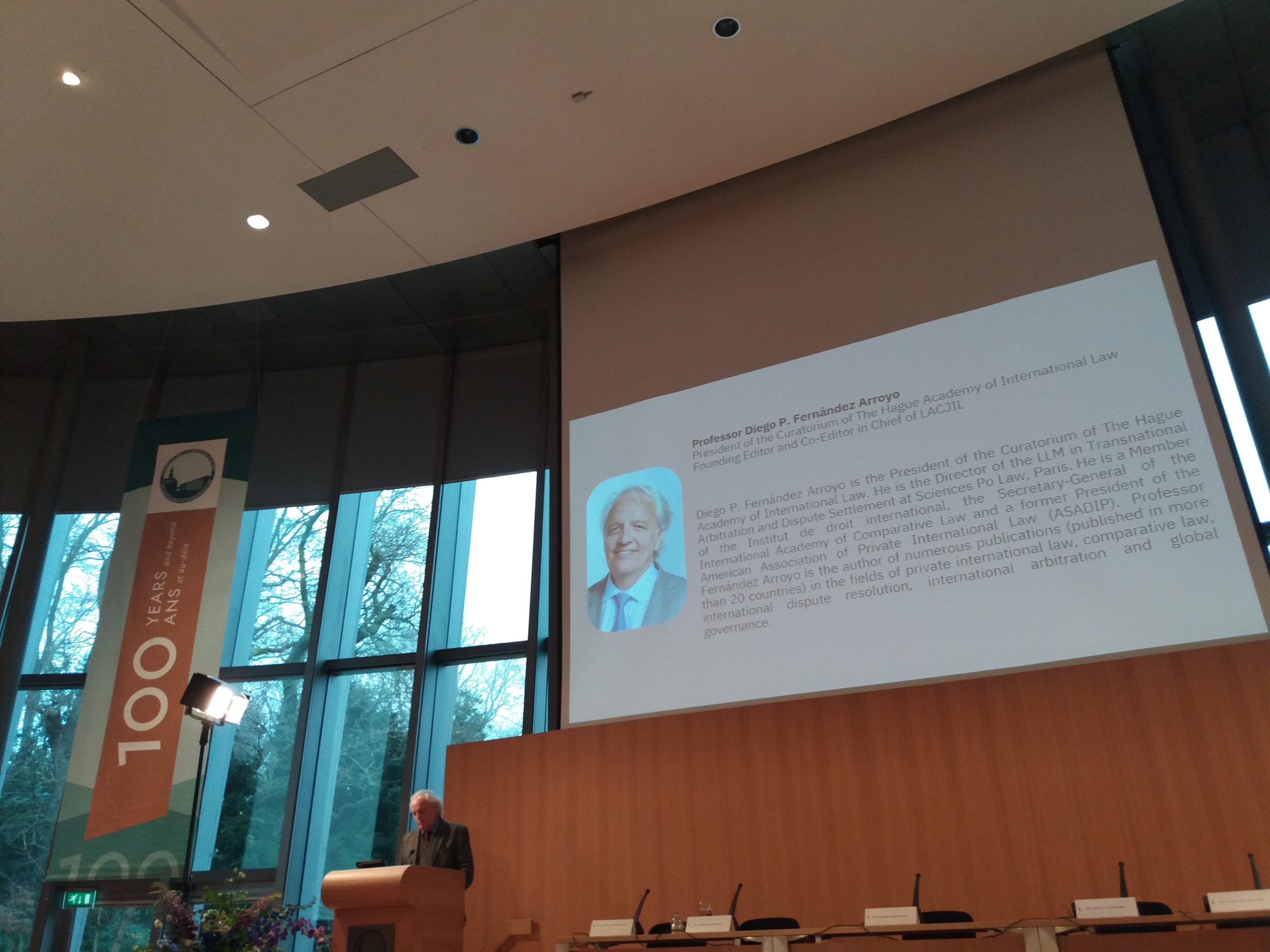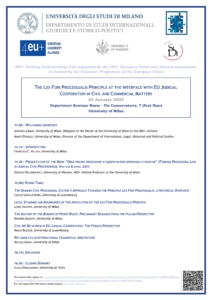Views
No Sunset of Retained EU Conflict of Laws in the UK, but Increased Risk of Sunburn
By Dr Johannes Ungerer, University of Oxford
The sunset of retained EU law in the UK has begun: the Retained EU Law (Revocation and Reform) Act 2023 received Royal Assent at the end of June. The Act will revoke many EU laws that have so far been retained in the UK by the end of 2023.
The good news for the conflict of laws is that the retained Rome I and II Regulations are not included in the long list of EU legal instruments which are affected by the mass-revocation. Both Regulations have been retained in the UK post-Brexit by section 3 of the European Union (Withdrawal) Act 2018 and were modified by the Law Applicable to Contractual Obligations and Non-Contractual Obligations (Amendment etc.) (EU Exit) Regulations 2019 (as amended in 2020). The retained (modified) Rome I and II Regulations will thus be part of domestic law beyond the end of 2023. Yet this retained EU law must not be called by name anymore: it will be called “assimilated law” according to section 5 of the Retained EU Law (Revocation and Reform) Act 2023 (although the title of this enactment, like others, will strangely continue to contain the phrase “Retained EU Law” and will not be changed to “Assimilated Law”, see section 5(5)).
The CJEU on Procedural Rules in Child Abduction Cases: private international law and children’s rights law
Comment on CJEU case Rzecznik Praw Dziecka e.a., C-638/22 PPU, 16 February 2023)
Written by Tine Van Hof, post-doc researcher in Private International Law and Children’s Rights Law at the University of Antwerp, previously published on EU live
The Court of Justice of the EU has been criticised after some previous cases concerning international child abduction such as Povse and Aguirre Zarraga for prioritising the effectiveness of the EU private international law framework (i.e. the Brussels IIa Regulation, since replaced by Brussels IIb, and the principle of mutual trust) and using the children’s rights law framework (i.e. Article 24 of the EU Charter of Fundamental Rights and the principle of the child’s best interests) in a functional manner (see e.g. Silvia Bartolini and Ruth Lamont). In Rzecznik Praw Dziecka the Court takes both frameworks into account but does not prioritise one or the other, since the frameworks concur.
Reappreciating the Composite Approach with Anupam Mittal v Westbridge II
Written by: Aditya Singh, BA.LL.B. (Hons) student at the National Law School of India University(NLSIU), Bengaluru and line editor at the National Law School Business Law Review (NLSBLR)
I. INTRODUCTION
The debate surrounding the composite approach i.e., the approach of accommodating the application of both the law applicable to the substantive contract and the Lex Fori to the arbitration clause has recently resurfaced with Anupam Mittal v Westbridge Ventures II (“Westbridge”). In this case, the Singapore Court of Appeal paved way for application of both the law governing substantive contract and the Lex Fori to determine the arbitrability of the concerned oppression and mismanagement dispute. The same was based on principle of comity, past precedents and s 11 of the International Arbitration Act. The text of s 11 (governing arbitrability) does not specify and hence limit the law determining public policy to Lex Fori. In any event, the composite approach regardless of any provision, majorly stems from basic contractual interpretation that extends the law governing substantive contract to the arbitration clause unless the presumption is rebuttable. For instance, in the instant case, the dispute would have been rendered in-arbitrable with the application of Indian law (law governing substantive contract) and hence the Singapore law was inferred to be the implied choice.[1] Read more
News
The Latin American and Caribbean Journal of International Law (LACJIL) has been launched

Today the Latin American and Caribbean Journal of International Law (LACJIL) was launched at the auditorium of the Hague Academy of the Peace Palace. Among the speakers were Prof. Diego Fernández Arroyo, president of the curatorium of the Hague Academy, and H.E. Leonardo Nemer Caldeira Brant, judge of the International Court of Justice. In addition, a very interesting panel was moderated by the Ambassador of Guatemala to the Kingdom of the Netherlands H.E. Ana Cristina Rodríguez Pineda. The panel was composed of the judge of the International Criminal Court H.E Althea Alexis-Windsor, the Ambassador of Colombia to the Kingdom of the Netherlands H.E. Carolina Olarte Bácares, the Ambassador of Argentina to the Kingdom of the Netherlands H.E. Mario J. A. Oyarzábal and the president of ASADIP Prof. Verónica Ruiz Abou-Nigm. The purpose of the panel was to discuss the recent legal developments in Latin America and the Caribbean, which included the ASADIP principles on transnational access to Justice (TRANSJUS). Read more
Seminar on the Lex fori processualis principle – University of Milan, 24 January 2025
 The seminar The Lex fori processualis principle at the interface with EU judicial cooperation in civil and commercial matters will take place on 24 January 2025 at the University of Milan. The seminar is organized as part of the 4EU+ Visiting Professorships Call, supported by the 4EU+ European University Alliance and co-funded by the Erasmus+ Programme of the European Union.
The seminar The Lex fori processualis principle at the interface with EU judicial cooperation in civil and commercial matters will take place on 24 January 2025 at the University of Milan. The seminar is organized as part of the 4EU+ Visiting Professorships Call, supported by the 4EU+ European University Alliance and co-funded by the Erasmus+ Programme of the European Union.
Hosted by the Department of International, Legal, Historical, and Political Studies of the University of Milan, the seminar will open with welcoming addresses (Antonella Baldi and Marco Pedrazzi) and an introduction (Francesca C. Villata). Bartosz Wolodkiewicz (University of Warsaw), currently a 4EU+ Visiting Professor at the University of Milan, will present the findings of his new book on foreign procedural law in civil judicial proceedings (Obce prawo procesowe w sadowym postepowaniu cywilnym, Wolters Kluwer 2024). Following this, a round table with international scholars will explore various aspects of the lex fori processualis principle, covering topics such as historical perspectives (Carlos Santaló Goris), legal standing (Lenka Válková), burden of proof (Martino Zulberti), ne bis in idem in EU judicial cooperation (Marco Buzzoni), and res judicata in international commercial arbitration (Michele Grassi). The seminar will conclude with a discussion and closing remarks by Elena D’Alessandro (University of Turin).
For more information on the 4EU+ Alliance, follow:
Facebook: 4EUplusAlliance
Instagram: 4euplus_alliance
LinkedIn: 4EUplus
#4EUplusAlliance #EuropeanUniversities #GrowingInMotion
With thanks for the tip-off to Dr Lenka Válková, University of Milan
Third Issue of Journal of Private International Law for 2024
The third issue of the Journal of Private International Law for 2024 features a special issue in honour of Professor Trevor Hartley.
It provides as follows (with other research articles):
Jacco Bomhoff, Uglješa Grušic & Manuel Penades Fons, “Introduction to the special issue in honour of Professor Trevor Hartley”
Jacco Bomhoff, Uglješa Grušic & Manuel Penades Fons, “Professor Trevor C Hartley’s Bibliography”
Jacco Bomhoff, “Law made for man: Trevor Hartley and the making of a “modern approach” in European and private international law”
This article offers an overview and an interpretation of Trevor Hartley’s scholarship in the fields of private international law and EU law. It argues that Hartley’s work, beginning in the mid-1960s and spanning almost six decades, shows striking affinities with two broader outlooks and genres of legal discourse that have roots in this same period. These can be found, firstly, in the approach of senior English judges committed to “internationalising” the conflict of laws in the post-war era; and, secondly, in the so-called “legal process” current of scholarship that was especially influential in American law schools from the late 1950s onwards. Reading Hartley’s writings against these backgrounds can help illuminate, and perhaps to some small extent complicate, two labels he himself has given to his own work: of a “modern approach”, in which “law is made for man, not man for the law”. Read more



